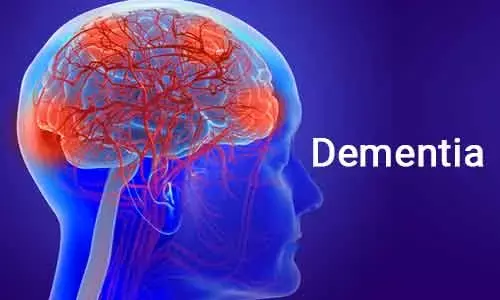- Home
- Medical news & Guidelines
- Anesthesiology
- Cardiology and CTVS
- Critical Care
- Dentistry
- Dermatology
- Diabetes and Endocrinology
- ENT
- Gastroenterology
- Medicine
- Nephrology
- Neurology
- Obstretics-Gynaecology
- Oncology
- Ophthalmology
- Orthopaedics
- Pediatrics-Neonatology
- Psychiatry
- Pulmonology
- Radiology
- Surgery
- Urology
- Laboratory Medicine
- Diet
- Nursing
- Paramedical
- Physiotherapy
- Health news
- Fact Check
- Bone Health Fact Check
- Brain Health Fact Check
- Cancer Related Fact Check
- Child Care Fact Check
- Dental and oral health fact check
- Diabetes and metabolic health fact check
- Diet and Nutrition Fact Check
- Eye and ENT Care Fact Check
- Fitness fact check
- Gut health fact check
- Heart health fact check
- Kidney health fact check
- Medical education fact check
- Men's health fact check
- Respiratory fact check
- Skin and hair care fact check
- Vaccine and Immunization fact check
- Women's health fact check
- AYUSH
- State News
- Andaman and Nicobar Islands
- Andhra Pradesh
- Arunachal Pradesh
- Assam
- Bihar
- Chandigarh
- Chattisgarh
- Dadra and Nagar Haveli
- Daman and Diu
- Delhi
- Goa
- Gujarat
- Haryana
- Himachal Pradesh
- Jammu & Kashmir
- Jharkhand
- Karnataka
- Kerala
- Ladakh
- Lakshadweep
- Madhya Pradesh
- Maharashtra
- Manipur
- Meghalaya
- Mizoram
- Nagaland
- Odisha
- Puducherry
- Punjab
- Rajasthan
- Sikkim
- Tamil Nadu
- Telangana
- Tripura
- Uttar Pradesh
- Uttrakhand
- West Bengal
- Medical Education
- Industry
Benzoate treatment beneficial in women with late stage dementia;JAMA

Benzoate treatment may improve cognitive function in women with later-phase dementia, suggests findings from a recently published study in JAMA .
"In the future, longer dose-finding trials are warranted to further clarify the efficacy of benzoate for later-phase dementia and investigate the role of sex hormones and other factors in the pathogenesis of dementia."the research team opined.
Female gender is a major risk factor for dementia; however, gender has not yet been adequately addressed by clinical trials. A recent study has demonstrated that sodium benzoate, a D-amino acid oxidase inhibitor, improved cognitive function in early-phase Alzheimer disease.
To gain deeper understanding on this, the team undertook the current study to examine the potential gender difference in the effects of benzoate treatment on the behavioral and psychological symptoms of dementia (BPSD).
This post hoc secondary analysis used data from a randomized, double-masked, placebo-controlled trial conducted in 3 major medical centers in Taiwan and enrolled 97 patients with BPSD. Data were analyzed between February 2014 and November 2017. Six weeks of treatment of 250 to 1500 mg/d of sodium benzoate or placebo. The primary outcome measures were Alzheimer disease assessment scale–cognitive subscale (ADAS-cog) and Behavioral Pathology in Alzheimer Disease Rating Scale (BEHAVE-AD) scores.
Data analysis revealed some interesting facts.
- Among 97 total participants (62 [64%] women; mean [SD] age, 75.4 [7.7] years), 49 patients (30 women and 19 men) were randomized to sodium benzoate, and 48 (32 women and 16 men) were randomized to placebo.
- Among 62 women, 6-week benzoate treatment significantly surpassed placebo in the effects on ADAS-cog performance (mean [SD] difference in score between baseline and end point, −3.1 [6.4] points vs 0 [4.5] points; Cohen d = 0.56; P = .04) but not BEHAVE-AD performance.
- In contrast, among 35 men, the 2 treatment groups did not differ significantly in both ADAS-cog and BEHAVE-AD scores.
- Compared with placebo, benzoate treatment also increased estradiol to follicle-stimulating hormone ratios among women (mean [SD] difference between baseline and end point, 0 [0.2] vs −0.1 [0.3]; P = .03).
"When considering the results of this post hoc secondary analysis of a randomized clinical trial on later-phase dementia with behavioral and psychological symptoms alongside our previous clinical trial on early-phase dementia, sodium benzoate, an indirect NMDAR agonist, can improve the cognitive function of all patients with early-phase dementia, but only benefit the cognitive function of female patients with later-phase dementia and behavioral and psychological symptoms. More studies are warranted to elucidate the underlying mechanisms." the team concluded.
Primary source: JAMA Network Open
For the full article follow the link: doi:10.1001/jamanetworkopen.2021.6156
Dr Satabdi Saha (BDS, MDS) is a practicing pediatric dentist with a keen interest in new medical researches and updates. She has completed her BDS from North Bengal Dental College ,Darjeeling. Then she went on to secure an ALL INDIA NEET PG rank and completed her MDS from the first dental college in the country – Dr R. Ahmed Dental College and Hospital. She is currently attached to The Marwari Relief Society Hospital as a consultant along with private practice of 2 years. She has published scientific papers in national and international journals. Her strong passion of sharing knowledge with the medical fraternity has motivated her to be a part of Medical Dialogues.
Dr Kamal Kant Kohli-MBBS, DTCD- a chest specialist with more than 30 years of practice and a flair for writing clinical articles, Dr Kamal Kant Kohli joined Medical Dialogues as a Chief Editor of Medical News. Besides writing articles, as an editor, he proofreads and verifies all the medical content published on Medical Dialogues including those coming from journals, studies,medical conferences,guidelines etc. Email: drkohli@medicaldialogues.in. Contact no. 011-43720751


